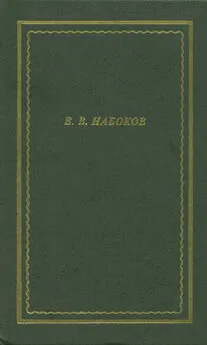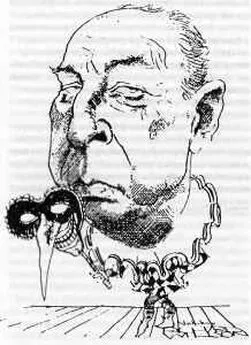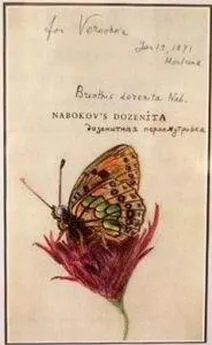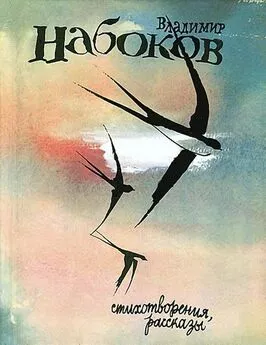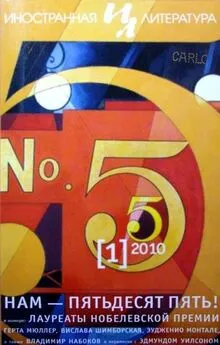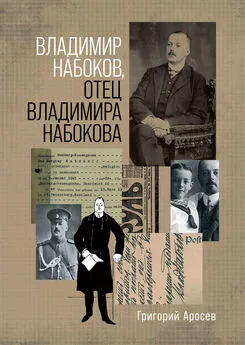Владимир Набоков - Стихотворения
- Название:Стихотворения
- Автор:
- Жанр:
- Издательство:Академический проект
- Год:2002
- Город:СПб.
- ISBN:5-7331-0160-1
- Рейтинг:
- Избранное:Добавить в избранное
-
Отзывы:
-
Ваша оценка:
Владимир Набоков - Стихотворения краткое содержание
Наиболее полное из всех до сих пор изданных в России собраний поэтических произведений крупнейшего русского/американского писателя XX века. В связи с уникальной спецификой двуязычного творчества Набокова в книге публикуются также его стихи, написанные на английском языке, и поэтические переводы на английский язык классических текстов русской поэзии (Пушкин, Лермонтов, Фет, Тютчев, Ходасевич). Публикуется также ряд переводов на французский язык и стихотворения из романов.
Стихотворения - читать онлайн бесплатно полную версию (весь текст целиком)
Интервал:
Закладка:
Up and up Art Longwood swarmed and shinned,
And the leaves said yes to the questioning wind.
What tiaras of gardens! What torrents of light!
How accessible ether! How easy flight!
His family circled the tree all day.
Pauline concluded: «Dad climbed away».
None saw the delirious celestial crowds
Greet the hero from earth in the snow of the clouds.
Mrs. Longwood was getting a little concerned.
He never came down. He never returned.
She found some change at the foot of the tree.
The children grew bored. Paul was stung by a bee.
The old men walked over and stood looking up,
Each holding five cards and a paper cup.
Cars on the highway stopped, backed, and then
Up a rutted road waddled into the glen.
And the tree was suddenly full of noise,
Conventioners, fishermen, freckled boys.
Anacondas and pumas were mentioned by some,
And all kinds of humans continued to come:
Tree surgeons, detectives, the fire brigade.
An ambulance parked in the dancing shade.
A drunken rogue with a rope and a gun
Arrived on the scene to see justice done.
Explorers, dendrologists — all were there;
And a strange pale girl with gypsy hair.
And from Cape Fear to Cape Flattery
Every paper had: Man Lost in Tree.
And the sky-bound oak (where owls had perched
And the moon dripped gold) was felled and searched.
They discovered some inchworms, a red-cheeked gall,
And an ancient nest with a new-laid ball.
They varnished the stump, put up railings and signs.
Restrooms nestled in roses and vines.
Mrs. Longwood, retouched, when the children died,
Became a photographer's dreamy bride.
And now the Deforests, with four old men,
Like regular tourists visit the glen;
Munch their lunches, look up and down,
Wash their hands, and drive back to town.
СТИХОТВОРЕНИЯ НА АНГЛИЙСКОМ, НЕ ВОШЕДШИЕ В ПРИЖИЗНЕННЫЕ СБОРНИКИ
429. REMEMBRANCE {*}
Like silent ships we two in darkness met,
And when some day the poet's careless fame
Shall breathe to you a half-forgotten name —
Soul of my song, I want you to regret.
For you had Love. Out of my life you tore
One shining page. I want, if we must part,
Remembrance pale to quiver in your heart
Like moonlit foam upon a windy shore.
430. HOME {*}
Music of windy woods, an endless song
Rippling in gleaming glades of Long Ago,
You follow me on tiptoe, swift and slow,
Through many a dreary year.... Ah, it was wrong
To wound those gentle trees! I dream and roam
O'er sun-tormented plains, from brook to brook,
And thence by stone grey thundering cities. Home,
My home magnificent is but a word
On a withered page in an old, dusty book.
Oh, wistful birch trees! I remember days
Of beauty: ferns; a green and golden mare;
A toadstool like a giant lady bird;
A fairy path; bells, tinkling bells, and sighs;
Whimsical orioles; white-rimmed butterflies
Fanning their velvet wings on velvet silver stems....
All is dead. Who cares, who understands?
Not even God.... I saw mysterious lands
And sailed to nowhere with blue-winged waves
Whirling around me. I have roved and raved
In southern harbours among drunken knaves,
And passed by narrow streets, scented and paved
With moonlight pale. There have I called and kissed
Veiled women swaying in a rhythmic mist,
But lonesome was my soul, and cold the night....
And if sometimes, when in the fading light
Chance friends would chatter, suddenly I grew
Restless and then quite still, — Ah, it was
Music of you, windy woods!
431. THE RUSSIAN SONG {*}
I dream of simple tender things:
a moonlit road and tinkling bells.
Ah, drearly the coachboy sings,
but sadness into beauty swells;
swells, and is lost in moonlight dim…
the singer sighs, and then the moon
full gently passes back to him
the quivering, unfinished tune.
In distant lands, on hill and plain,
thus do I dream, when nights are long, —
and memory gives back again
the whisper of that long-lost song.
432. SOFTEST OF TONGUES {*}
To many things I've said the word that cheats
the lips and leaves them parted (thus: prash-chai
which means «good-bye») — to furnished flats, to streets,
to milk-white letters melting in the sky;
to drab designs that habit seldom sees,
to novels interrupted by the din
of tunnels, annotated by quick trees,
abandoned with a squashed banana skin;
to a dim waiter in a dimmer town,
to cuts that healed and to a thumbless glove;
also to things of lyrical renown
perhaps more universal, such as love.
Thus life has been an endless line of land
receding endlessly.... And so that's that,
you say under your breath, and wave your hand,
and then your handkerchief, and then your hat.
To all these things I've said the fatal word,
using a tongue I had so tuned and tamed
that — like some ancient sonneteer — I heard
its echoes by posterity acclaimed.
But now thou too must go; just here we part,
softest of tongues, my true one, all my own....
And I am left to grope for heart and art
and start anew with clumsy tools of stone.
433. EXILE {*}
He happens to be a French poet, that thin,
book-carrying man with a bristly gray chin;
you meet him wherever you go
across the bright campus, past ivy-clad walls.
The wind which is driving him mad (this recalls
a rather good line in Hugo),
keeps making blue holes in the waterproof gloss
of college-bred poplars that rustle and toss
their slippery shadows at pied
young beauties, all legs, as they bicycle through
his shoulder, his armpit, his heart, and the two
big books that are hurting his side.
Verlaine had been also a teacher. Somewhere
in England. And what about great Baudelaire,
alone in his Belgian hell?
This ivy resembles the eyes of the deaf.
Come, leaf, name a country beginning with «f»;
for instance, «forget» or «farewell».
Thus dimly he muses and dreamily heeds
his eavesdropping self as his body recedes,
dissolving in sun-shattered shade.
L'Envoi: Those poor chairs in the Bois, one of which
legs up, stuck half-drowned in the slime of a ditch
while others were grouped in a glade.
434. A POEM {*}
When he was small, when he would fall,
on sand or carpet he would lie
quite flat and still until he knew
what he would do: get up or cry.
After the battle, flat and still
upon a hillside now he lies —
but there is nothing to decide,
for he can neither cry nor rise.
435. DREAM {*}
«Now it is coming, and the sooner
the better», said my swooning soul —
and in the sudden blinding lunar
landscape, out of a howling hole
a one-legged child that howled with laughter
hopped and went hopping hopping after
a bloody and bewildered bone,
a limb that walked away alone.
Perhaps the window shade had billowed
and slapped the darkness on the face;
but when I had picked up and pillowed
the book of sleep and found the place,
I saw him haltingly returning
out of the dust, back to the burning
hole of his three-walled home — that boy
hugging a new, a nameless toy.
436. DANDELIONS {*}
Moons on the lawn replace the suns
that mowers happily had missed.
Where age would stoop, a babe will squat
and rise with star-fluff in its first.
437. LUNAR LINES {*}
Spell «night». Spell «pebbles»: Pebbles in the Night.
Peep, crated chicks on lonely station! This
Is now the ABC of the abyss,
The Desperanto we must learn to write.
ПЕРЕВОДЫ НА АНГЛИЙСКИЙ {*}
Александр Пушкин
438–439. FROM «MOZART AND SALIERI» {*}
I know now there is none in Heaven. Plain
as seven simple notes! I have loved the art
from birth; when I was but a little child
in our old church and the organ boomed sublimely,
I listened and was lost — shedding delicious
involuntary tears. I turned away
from foolish pastimes early; found repellent
all studies foreign to my music — ay,
from all I turned with obstinate disdain,
determined thence to dedicate myself
to music, music only. The start is hard,
the first steps make dull going. I surmounted
the initial obstacles; I grounded firmly
that craft that makes the pedestal for art;
a craftsman I became: I trained my fingers
to dry obedient proficiency,
brought sureness to my ear. Stunning the sounds,
I cut up music like a corpse; I tested
the laws of harmony by mathematics.
Then only, rich in learning, dared I yield
to blandishments of sweet creative fancy.
I dared compose — but silently, in secret,
nor could I venture yet to dream of glory.
How often, in my solitary cell,
having toiled for days, having sat unbroken hours,
forgetting food and sleep, and having tasted
the rapture and the tears of inspiration,
I'd burn my work and coldly watch the flame
as my own melodies and meditations
flared up and smoked a little and were gone.
Nay, even more: when the great Gluck appeared,
when he unveiled to us new marvels, deep
enchanting marvels — did I not forsake
all I had known, and loved so well and trusted?
Did I not follow him with eager stride,
obedient as one who'd lost his way
and met a passerby who knew the turning?
By dint of stubborn steadfast perseverance
upon the endless mountainside of art
I reached at last a lofty level. Fame
smiled on me; and I found in others' hearts
responses to the sounds I had assembled.
Came happy days: in quiet I enjoyed
Work and success and fame — enjoying also
the works and the successes of my friends,
my comrades in that art divine we served.
Oh, never did I envy know. Nay, never!
Not even when Piccini found a way
to captivate the ears of savage Paris —
not even when I heard for the first time
the plangent opening strains of «Iphigenia».
Is there a man alive who'll say Salieri
has ever stooped to envy — played the snake
that, trampled underfoot, still writhes and bites
the gravel and the dust in helpless spite?
Not one!.. Yet now — I needs must say it — now
I am an envious man. I envy — deeply,
to agony, I envy. — Tell me, Heaven!
where now is justice when the holiest gift,
when genius and its immortality,
come not as a reward for fervent love,
for abnegation, prayer and dogged labor —
but lights its radiance in the head of folly,
of idle wantonness? …Oh, Mozart, Mozart!
to take you by surprise — a little joke.
was on my way to you to show you something
when, passing near a tavern, all at once
I heard a fiddle.... Oh, my dear Salieri!
You never in your life heard anything
so funny.... Than blind fiddler in a pothouse
playing Voi сhe sapete. Marvelous!
I simply had to bring him here to have you
enjoy his art. — Step in!
Some Mozart, please!
Интервал:
Закладка:
